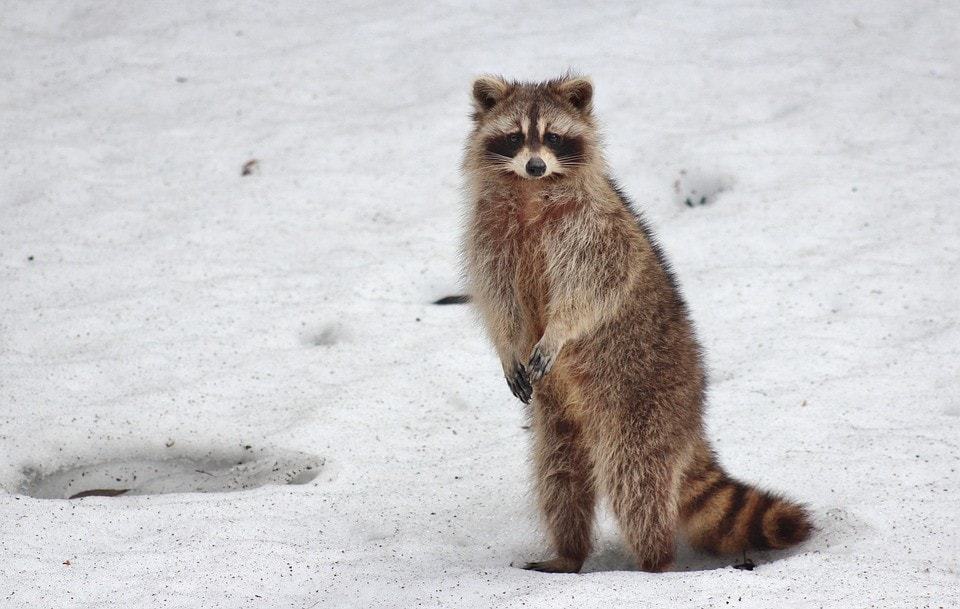Raccoons, also lovingly known as “trash pandas”, are among the most recognizable animals, with their striped tails and masked eyes. These sneaky critters are everywhere, always on the hunt for some tasty food. Regardless of their ability to tear apart rooms and their endless search for snacks, many people have fallen in love with raccoons and keep them as pets. They have the diet of a true scavenger, eating pretty much anything to survive. When in captivity, their diets can be healthier due to not having to search for food.
The truth is that raccoons will eat pretty much anything if given the opportunity, which would mainly be fruits, vegetables, and animal protein. Let’s take a deeper look at what raccoons eat in the wild and as pets.

What Kind of Animals Are Raccoons?
While raccoons are very well known, knowing what they are and what animal family they belong to is not always clear. Raccoons are nocturnal mammals native to the Americas and part of the Procyonid family, including ringtails, kinkajous, and coatis. There are 22 subspecies of raccoons, ranging in size and appearance.
Raccoons have a fluffy coat ranging from whitish grey to a dark charcoal gray with an underlayer for cold weather protection, a long tail that is usually striped, and a black stripe across their eyes. Raccoons also have sharp claws and teeth, so taking a bite from one can be very painful. They have short lifespans in the wild, around 1–4 years, but can live up to 15 years in captivity.
They use their sense of touch with their sensitive front paws while also using them cleverly to open and search for food. Once they’ve found something they want, raccoons will work endlessly to get it. They’re not deterred by trash cans or dumpsters, often scavenging in them for thrown out pieces of food for survival.
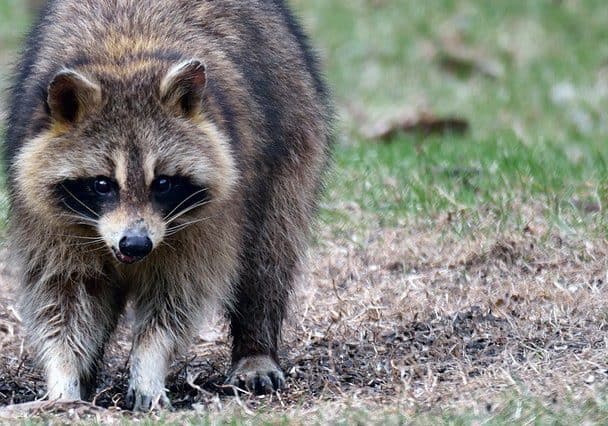
What Kind of Diet Do Raccoons Have in the Wild?
Raccoons are natural omnivores, so they eat a wide variety of fruits and vegetables, as well as animal proteins. They will scavenge in the wild to find food during the night, though raccoons will sometimes be seen during the day searching for food. They are true omnivores and will eat just about anything, from invertebrates to plant material.
Raccoons that live near rivers and lakes also enjoy amphibians, fish, and even bird eggs. Only a few foods can be toxic to raccoons, but they’ll otherwise eat whatever they can easily find. Some raccoons will even eat small birds and other small animals if they can catch them, though they usually hunt for something easier to get.
One of the reasons why raccoons are so famous is because of their dousing habit. They often wet their food at riverbanks and lakes, which gives the appearance of cleaning their food. There are many theories as to why they do this, as captive raccoons also douse their food. Regardless of the reason, it’s one habit of many that these bandit-looking creatures are known to do.
Why Do Racoons Love Garbage?
One reason that raccoons are famous is that it seems that they love garbage. There are countless videos of raccoons breaking into garbage cans, getting stuck in big city dumpsters, and living up to their “trash panda” nickname. While that may sound funny, the truth is that raccoons do it for survival.
With mass destruction of their natural habitat, causing a considerable loss of food to scavenge, raccoons turn to neighborhood trash cans, gardens, and even garages to look for any scraps of food. They scavenge for survival and usually don’t get enough nutrients this way, which will shorten their lifespans.
One major problem is that some people feed raccoons, which will bring them back and invite them to scavenge. Feeding wild animals is never a good idea, but animals like raccoons and deer will keep returning for more. Even though it is tempting, it’s best to leave wild animals alone and appreciate them from afar.
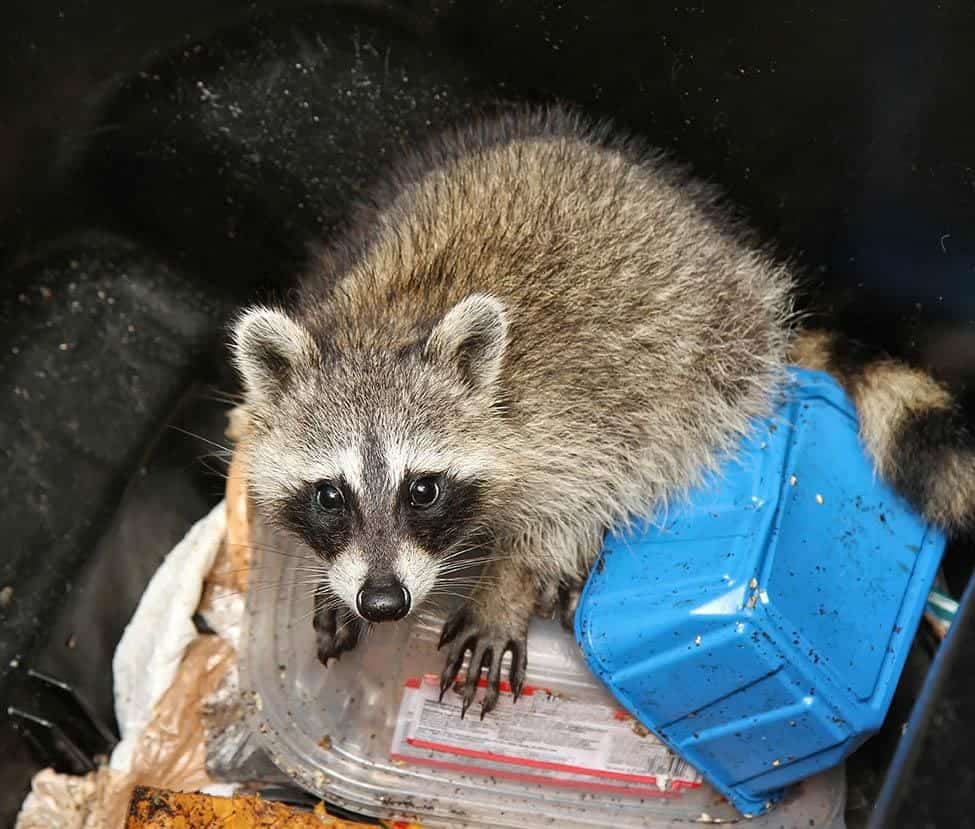
What Do Raccoons Eat in Captivity?
Despite their uncanny ability to scavenge, raccoons thrive in captivity simply for the fact that they don’t have to rely on scavenging. In captivity, raccoons eat a diet that nutritionally reflects their natural one, given a mix of fish, poultry, fresh fruits and vegetables, eggs, insects, and dog food.
Raccoons need access to a fresh source of water to douse their food in, which can get messy quickly. They will not douse their food in dirty water, so their water source needs to be changed often. Dousing is a natural ritual and shouldn’t be restricted. They will douse just about anything, especially dry things like dog food.
Captive raccoons are usually fed twice a day, once in the morning and once at night. However, raccoons in captivity at zoos and sanctuaries are fed based on their needs under a veterinarian’s guidance. If you’re looking for diet recommendations for your pet raccoon, consult with an exotic animal vet for your raccoon’s specific needs.
What Is Not Safe to Feed a Raccoon?
Raccoons may be trash can scavengers, but that doesn’t mean they’re impervious to all food. Similar to dogs and cats, onions, garlic, and chocolate are all toxic to raccoons. Raisins can also cause them to be sick, but fresh grapes are fine. Anything high in fats like nuts can cause weight gain and other issues, so, it’s essential to give it to them sparingly.
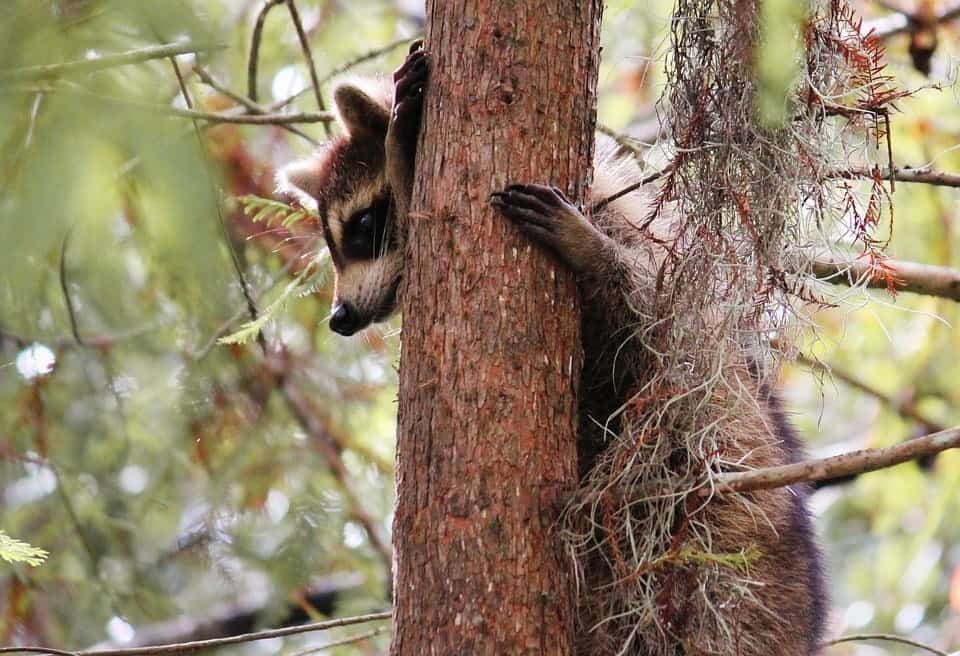
Are Racoons Good Pets?
Many animals can be great pets, even exotic ones that have complex living requirements. Raccoons could be a good “pet” to an experienced exotic animal owner but are not a good option for the average household. Raccoons have sharp teeth and will bite when threatened or frustrated, even if they’re not provoked to do so.
Raccoons are less aggressive and seem to be domesticated when they’re babies and young adults, so they seem to be great pets at first. However, many raccoons are abandoned in the wild or surrendered to a sanctuary as adults. This is usually due to adult raccoons being more aggressive, often biting and scratching hard enough to moderate damage.
If you plan on getting a raccoon, it’s essential to know how to take care of them. Raccoons are wild animals with complex needs, which is why they’re rarely suitable for most households. They’re generally not safe for families with children since they can quickly become aggressive and bite.
Are Racoons Legal to Own in the United States?
Yes, surprisingly, raccoons are legal to own—depending on your state. Some states are liberal with their exotic pet laws, whereas others have strict guidelines to follow. Arizona, Colorado, Idaho, Kentucky, Louisiana, Maryland, and Massachusetts are all states that have banned raccoons as pets.
If you plan to get a raccoon as a pet, follow all guidelines and laws in your state. Never bring a wild raccoon in and find a reputable breeder. Wild raccoons are different in temperament than bred and captive raccoons, so it’s crucial to find a pet raccoon breeder. If you have found a baby raccoon outside, call a sanctuary instead of keeping it as a pet.
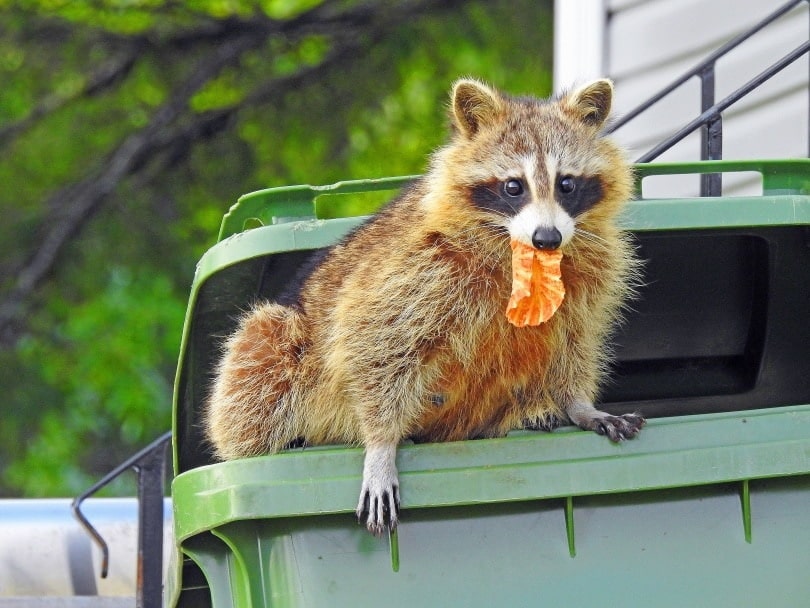

Final Thoughts
Raccoons take the term omnivore to a whole new level, eating anything they can easily get ahold of. Captive raccoons are also fed a nice mixture of different food, ranging from plants to chicken and dry dog kibble. They’re crafty animals and will do anything to survive, even if that means eating straight out of the garbage can. Captive raccoons are just as mischievous, so you must be prepared for a high-maintenance animal in your home. Their diet requirements will also be expensive, making them a difficult pet to own and feed.
While they are cute, it’s important not to feed wild animals such as raccoons. They will only come back for more, often bringing along others for food. It will encourage them to ask other humans for food. If you see raccoons in your garbage, do your best to secure the cans to prevent them from eating from the cans.
See also:
- 8 Proven Methods to Keep Raccoons Out of Cat Food
- Do Red Pandas Make Good Pets? What You Need to Know
Featured Image Credit: Pixabay
